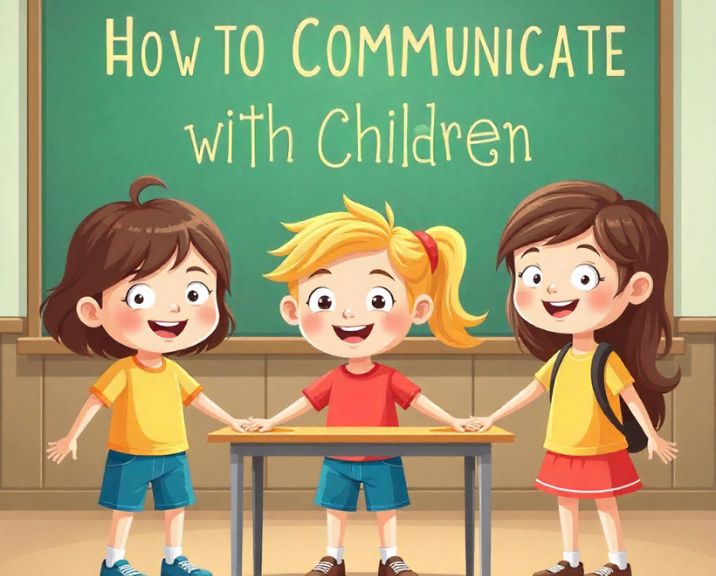
How To Communicate With Children: An Age-By-Age Guide
Parenting is hard enough without having to worry about how to communicate with children effectively. It seems like every day they’re changing and growing, which can make it difficult to know what strategies will work best. Thankfully, we’ve put together this handy guide that outlines the best ways to communicate with children at every stage of development. Keep reading to learn more!
Communication is at the heart of every strong relationship especially between parents and children. The way you talk, listen, and respond helps shape how your child understands the world and expresses themselves. At The Manthan School, we believe effective communication builds trust, encourages learning, and strengthens emotional bonds between families.
0-2 Years Old
At this age, children are just beginning to figure out how the world works. They’re starting to understand that words have meaning, but they don’t yet have the ability to communicate verbally.
The best way to communicate with them is through simple commands and short phrases paired with lots of facial expressions and gestures. This will help them start to understand the meanings of words and how they can be used.
It’s also important to listen and respond to your child’s sounds and expressions. When parents smile, talk softly, or mimic their baby’s sounds, it creates a comforting environment that encourages language development and emotional security.
3-5 Years Old
Three-to-five-year-olds are in what’s known as the “preoperational” stage of development. This means that they’re starting to understand that symbols (like words) can represent objects or ideas. They’re also beginning to be able to think logically about some things, but they still struggle with others.
At this stage, play becomes a wonderful tool for communication. Reading storybooks together, singing rhymes, or using toys to act out emotions helps children express what they feel — even when they can’t yet find the right words.
The best way to communicate with them is by using short sentences and concrete examples. Avoid using phrases like “I’ll bet you’re wondering why I’m asking you this” or “You must be feeling X right now” because they won’t be able to understand these concepts yet.
6-8 Years Old
Six-to-eight-year-olds are in the “concrete operational” stage of development, which means that they can think logically about concrete objects and ideas. They still have trouble understanding abstract concepts, but they’re starting to be able to see both sides of an issue and consider different points of view.
The best way to communicate with them is by using clear language and concrete examples. It’s also important to avoid overwhelming them with too much information at once. Break things down into small, manageable chunks so that they can process it all more easily.
Encourage open-ended questions like “What do you think will happen next?” or “How did that make you feel?” This not only builds critical thinking but also makes children feel that their opinions matter, boosting confidence and trust.
9-11 Years Old
Nine-to-eleven year olds are in the “formal operational” stage of development, which means that they can think abstractly and reason through problems systematically. They’re able to see multiple sides of an issue and consider different points of view.
Pre-teens begin to value privacy and independence, but they still need reassurance and guidance. Maintaining open communication without being judgmental helps them share their thoughts freely, especially about school or friendships.
The best way to communicate with them is by using clear language and logical explanations. It’s also important not to dismiss their feelings or experiences. Let them know that you understand how they’re feeling even if you don’t necessarily agree with their perspective.
No matter the age, communication should always be rooted in empathy, patience, and understanding. By adjusting how we talk to children at different stages, we help them feel valued, respected, and emotionally secure.
Now that you know a little bit more about how children develop communication skills, it’s time to put what you’ve learned into practice! Remember that every child is unique and will require a different approach depending on their age and stage of development.
The Manthan School Greater Noida West encourages parents to keep the lines of communication open, be patient, and try their best. Parenting is hard enough without having to worry about perfection.
At The Manthan School, we believe that strong communication between parents and children forms the foundation for lifelong learning and emotional growth. By encouraging open conversations both at home and in school, we help children become confident, thoughtful, and expressive individuals.
Admissions are open for the academic session 2022-23 at The Manthan School. You can find more information about our school, curriculum, and admission on our official website.
Click here to apply now
